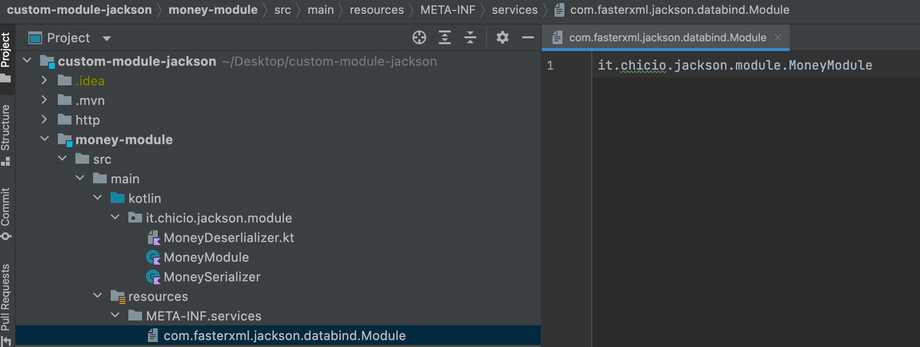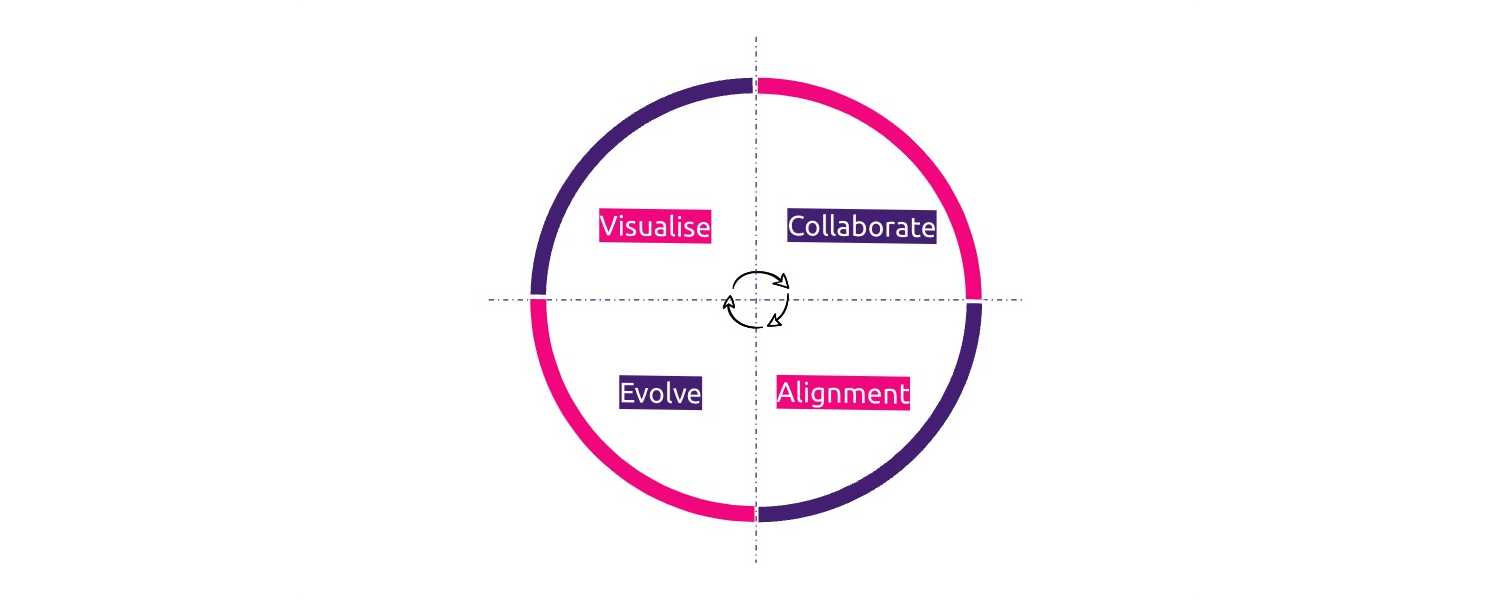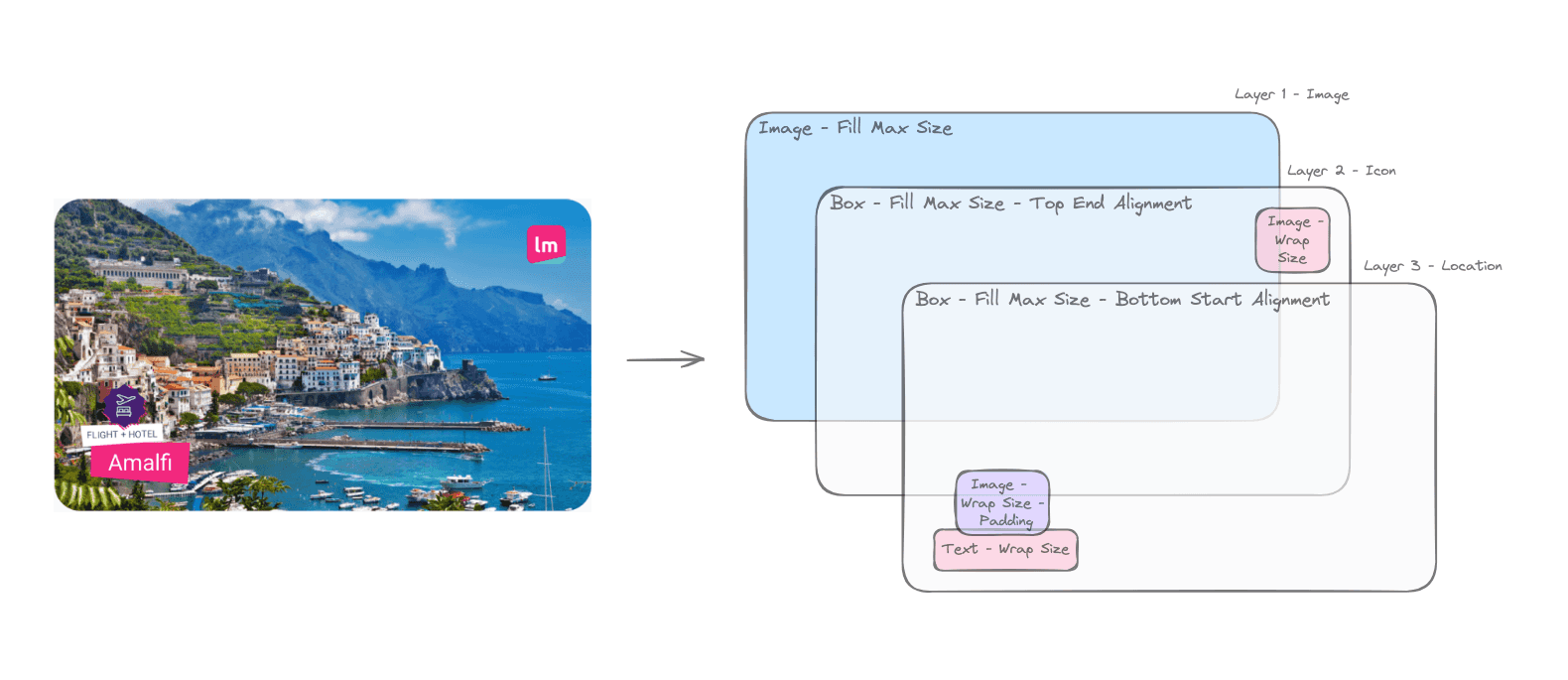In the last weeks I started to work in a new team on a new project at lastminute.com group. One of the goals we have is to renew the foundations of the company software overall architecture by
introducing in the development workflow new technologies. In particular, we are using Axon,
a framework to help developer to create Domain Driven Design applications
that leverage specific architectural pattern like CQRS and
Event Sourcing.
During the definition of a new microservice we had to customize the object mapper used by Axon,
defined in one maven module (that will probably be integrated in our app-framework framework
if we decide to stick with it) from one of our new app specific module without creating any kind of
coupling/dependencies. This is how me and Alex Stabile
discovered the power of Java Service Provider interface, used by Jackson
Object Mapper to register external custom Modules in order
to apply application specific serialization/deserialization procedures.
So everything is setup and ready, let’s go!!
Implementation
Let’s start by defining a simple webapp application defined in one maven module. This app exposes a couple of
endpoints in the ProductRestController, a standard spring boot RestController. These endpoints let the client add
and retrieve Product information by using the ProductRepository. Below you can find the controller code.
@RestController
class ProductRestController(
private val productRepository: ProductRepository
) {
@GetMapping("/product/{idProduct}")
fun getProductFor(@PathVariable idProduct: Long): ResponseEntity<*> =
productRepository
.get(idProduct)
.fold(
{ ResponseEntity.notFound().build() },
{ ResponseEntity.ok(it) }
)
@PostMapping("/product/add")
fun add(@RequestBody product: Product): ResponseEntity<*> =
productRepository
.add(product)
.fold(
{ ResponseEntity.internalServerError().build() },
{ ResponseEntity.ok(it) }
)
}The Product and ProductRepository classes are really simple. ProductRepository is an “in memory
repository” that exposes a couple of methods to get and
add products. This repository has been created using Arrow (see the result type of type
Option).
class ProductRepository {
private val products = mutableListOf(
Product(
1,
"A product",
Money.of(BigDecimal("100.00"), "EUR")
),
Product(
2,
"Another product",
Money.of(BigDecimal("150.00"), "EUR")
),
Product(
3,
"Yet another product",
Money.of(BigDecimal("120.50"), "EUR")
)
)
fun get(idProduct: Long): Option<Product> =
products.find { it.idProduct == idProduct }.toOption()
fun add(product: Product): Option<Unit> =
products
.find { it.idProduct == product.idProduct }
.toOption()
.fold(
{
products.add(product)
Unit.some()
},
{ None }
)
}Product contains the information about our products. Here comes the interesting part: the amount property has
been defined using the Money type from the JavaMoney library.
import org.javamoney.moneta.Money
data class Product(
val idProduct: Long,
val description: String,
val amount: Money
)The fact that we are using the Money type in the amount means that in the response and request of te endpoints we
showed above, the object to be passed as JSON should be with all the fields of this type. For example the
/product/{idProduct} endpoint will return us the following response.
{
"idProduct": 3,
"description": "Yet another product",
"amount": {
"currency": {
"context": {
"providerName": "java.util.Currency",
"empty": false
},
"currencyCode": "EUR",
"numericCode": 978,
"defaultFractionDigits": 2
},
"number": 120.5,
"context": {
"precision": 256,
"fixedScale": false,
"maxScale": -1,
"amountType": "org.javamoney.moneta.Money",
"providerName": null,
"empty": false
},
"numberStripped": 120.5,
"zero": false,
"positive": true,
"positiveOrZero": true,
"negative": false,
"negativeOrZero": false,
"factory": {
"defaultMonetaryContext": {
"precision": 0,
"fixedScale": false,
"maxScale": 63,
"amountType": "org.javamoney.moneta.Money",
"providerName": null,
"empty": false
},
"maxNumber": null,
"minNumber": null,
"amountType": "org.javamoney.moneta.Money",
"maximalMonetaryContext": {
"precision": 0,
"fixedScale": false,
"maxScale": -1,
"amountType": "org.javamoney.moneta.Money",
"providerName": null,
"empty": false
}
}
}
}This is not what we want!!! What we would like to have as response is something like the following json.
{
"idProduct": 3,
"description": "Yet another product",
"amount": {
"amount": "120.5",
"currency": "EUR"
}
}We also have the same problem in the /product/add endpoint, where we are forced to send a request with the payload
above, the one with all the Money fields, in order to add a product. How can we customize the way the Jackson
ObjectMapper serialize/deserialize Money instances? We can write a custom Module for it. By
defining a custom module we can add ad-hoc serializers and deserializers. We will define our object mapper module in
a new maven module called money-module.
Let’s start by defining theMoneyDeserializer. It will give us the ability to define a Money instance from the data
contained in a JSON that we are deserializing.
open class MoneyDeserializer : StdDeserializer<Money>(Money::class.java) {
override fun deserialize(jsonParser: JsonParser, obj: DeserializationContext): Money {
val node: JsonNode = jsonParser.codec.readTree(jsonParser)
val amount = BigDecimal(node.get("value").asText())
val currency: String = node.get("currency").asText()
return Money.of(amount, currency)
}
}The MoneySerializer let us defined which fields of a Money instance we want to write to a json. We can also the
define the specific type we want to use in the json for each one of them.
open class MoneySerializer : StdSerializer<Money>(Money::class.java) {
@Throws(IOException::class)
override fun serialize(money: Money, jsonGenerator: JsonGenerator, serializerProvider: SerializerProvider) {
jsonGenerator.writeStartObject()
jsonGenerator.writeStringField("amount", money.numberStripped.toPlainString())
jsonGenerator.writeStringField("currency", money.currency.toString())
jsonGenerator.writeEndObject()
}
}Now we can add our custom serializer/deserializer to our MoneyModule definition.
class MoneyModule: SimpleModule() {
override fun getModuleName(): String = this.javaClass.simpleName
override fun setupModule(context: SetupContext) {
val serializers = SimpleSerializers()
serializers.addSerializer(Money::class.java, MoneySerializer())
context.addSerializers(serializers)
val deserializers = SimpleDeserializers()
deserializers.addDeserializer(Money::class.java, MoneyDeserializer())
context.addDeserializers(deserializers)
}
}We are now at the core of our development: how do we load our custom module into our object mapper? Well we have
different options based on our use case. If you’re using the DEFAULT Spring Boot object mapper you can just define
a new @Bean for the MoneyModule that will be used by Spring Boot to load it(with its custom internal flow).
But this is not our case: in our ProductConfiguration we have defined a custom objectMapper bean.
@Configuration
class ProductConfiguration {
@Bean
fun productRepository(): ProductRepository = ProductRepository()
@Bean
@Primary
fun objectMapper(): ObjectMapper =
ObjectMapper()
.findAndRegisterModules()
.configure(SerializationFeature.WRITE_DATES_AS_TIMESTAMPS, false)
}If you look closely to our ObjectMapper definition you can see something interesting: before returning the
instance creation there is a call to the findAndRegisterModules. What does this method do? It contains
the core feature of Jackson Modules load . This method is in charge of loading external third party
modules using the Java Service Provider interfaces.
This is a feature of Java 6 that let (library) developer write code to load and discovery third party plugins for their
library implementations that matches a specific interface. In our case Jackson uses it to load every third party
implementation that matches the Module interface. How does it work? The ServiceProvider will scan the classpath
searching for service definition adhering to the base interface defined for the external/third party implementation.
This is done by searching for a specific file in the folders META-INF/services of the (maven) modules in the classpath, named with
the fully qualified name of the interface loaded by the ServiceProvider and that contains the fully qualified name
of our implementation. So in our case, to load our MoneyModule contained in the maven module money-module, we
just have to add a file named com.fasterxml.jackson.databind.Module in the META-INF/services folder of the
money-module and inside it write the fully qualified name of our MoneyModule implementation.

That’s it!!! With the implementation above we have a custom Jackson
Module that will be loaded by its
ObjectMapper automatically without creating any dependencies. In this way you will be able to publish your
custom serializer/deserializer as custom maven artifacts and use them in all your projects (without copy/paste them)
.
Conclusion
You can find the complete source code of the example show above in this Github repository. Stay tuned for new
article on one of the technologies/Pattern above (Axon, CQRS, Event Sourcing, we have a lot of stuff to talk about
).







